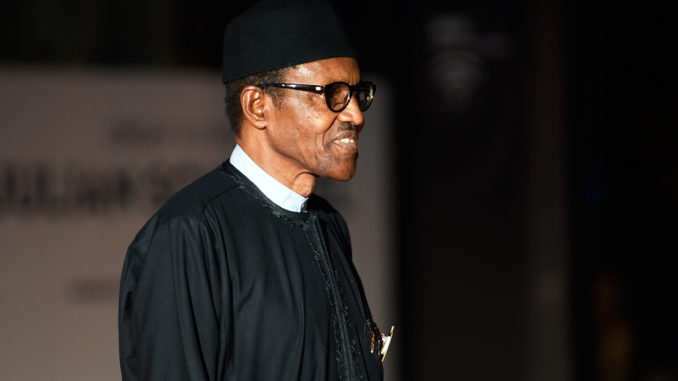
It is widely proclaimed, and generally believed, that access to finance is the biggest single problem facing Micro, Small and Medium Enterprises in Nigeria. But many experts cite the counter narrative that shortage of technical know-how, executive capacity and limited market opportunities are far bigger obstacles to entrepreneurial success.
Be that as it may, the Federal Government remains unrelenting in its search for solutions to the financial problems of Small Business Owners and Independent Professionals. It has a growing range of policies and programmes that seek to provide debt and equity support for new entrepreneurs through access to soft loans.
In pursuit of this objective, in furtherance of his campaign for re-election in 2019 for a second term of four years, President Muhammadu Buhari, recently said his administration will establish an Entrepreneurs Bank which will offer cheap funds for Micro, Small and Medium Enterprises.
This plan raises one question: Is a new bank for entrepreneurs the answer to the problem of financing small businesses in Nigeria? The track records of institutions created for the same reason and purpose suggest otherwise. Nigeria now has not fewer than three development finance institutions; each specially set up to lend investible monies to entrepreneurs. Fully or partly owned and funded by the Federal Government, they include the following:
Bank of Industry. Currently Nigeria’s leading development Bank, BoI focuses on lending to such industrial and value-adding sectors as manufacturing, agro-processing and entertainment. It extends credit to entrepreneurs at about nine percent interest rate.
Bank of Agriculture. BoA concentrates on providing loans to farmers and enterprises in the agriculture value chain. Its interest rate is five percent.
Development Bank of Nigeria. DBN started operations in 2016 and aims to increase lending to Micro, Small and Medium Enterprises. It lends its funds through commercial banks, microfinance banks and related financial services. Its official interest rate is single-digit but end users claim to pay 13 to 16 percent.
At its present operating volume, the aggregate of loans and advances that the Bank of Industry is granting small businesses is not big enough to make the desired impact, given the size of the demand. Moreover, the Bank of Industry ought to reduce its interest rate and increase its loan volume, for it to fully direct its focus on making Nigeria a producer nation, with output that would lead to economic growth.
The current capitalisation of the Bank of Agriculture, which exists to lend money to farmers at five percent interest rate, is negative. The Federal Government’s promise to re-capitalise it with N250 billion by this month (December 2018) is yet to materialise.
Consequently, there is hardly any activity at the Bank of Agriculture since it does not have money to lend to farmers. It is notable that BoA is not even a key player in the Anchor Borrowers Programme under which the Central Bank of Nigeria has disbursed N150 billion in two years to farmers of selected agriculture products.
Unlike BoI and BoA which are sector-specific, the Development Bank of Nigeria lends across all sectors of the economy. This positions it to serve a good segment of the estimated 37 million MSMEs in Nigeria. Unlike BoI and BoA which launched with seed money provided by the Federal Government, 100 percent of DBN’s initial capital of $1.3 billion is from long-term loans from international development finance institutions.
If this solid financial foundation is grounded on the strong corporate governance expected from its international ownership structure, and the bank succeeds in managing the risks associated with advancing credit to its target market, the DBN may emerge as the model for making loanable funds available to Nigeria’s Micro, Small and Medium Enterprises.
What the foregoing scenarios indicate is that, with three development-oriented banks targeted to Small Business Owners, Nigerian entrepreneurs don’t need another bank for entrepreneurs. What the Buhari administration needs, if it gets a second chance, come 2019, is to examine why the Bank of Industry and Bank of Agriculture are struggling with their mandates. If nothing else, it is clear that they need to be adequately funded and professionally managed.
In the face of these challenges of the existing institutions, to start another bank for entrepreneurs will be a waste of money on another development finance institution at a time the ones set up for the same reason are yet to achieve their objective of funding Nigeria’s Small Business Owners.
The establishment of these institutions must be guided by the need to balance the achievement of development impact with attainment of positive financial bottom lines. They must not be pawns on the chessboard of political sloganeering.
For these reasons, the message for the Buhari Presidency is obvious. Strengthen the Bank of Industry through diversification of its sources of working capital, thereby enabling it to broaden and deepen its credit coverage. Re-capitalise the Bank of Agriculture so that it can deliver on its mandate. Consolidate the position of the Development Bank of Nigeria as Nigeria’s model development finance institution. Duplicating them is not a viable option!
Iwere is the Managing Director of SME Media Limited.
END

Be the first to comment